“Why didn’t I know about this before?”
This is a common refrain heard when discovering human rights breakthroughs from decades past – and the love story of Richard and Mildred Loving has paved the way for many more since.
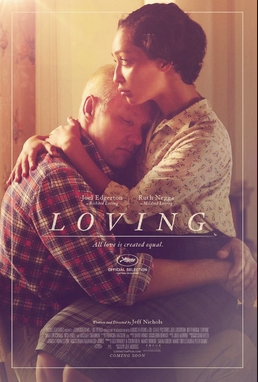
Loving is the new film from acclaimed writer/director Jeff Nichols (Take Shelter, Mud, Midnight Special). The Loving family story is reflected in a film out this week in the UK.
The film Loving celebrates the real-life courage and commitment of an interracial couple, Richard and Mildred Loving (portrayed in the film by Joel Edgerton and Ruth Negga), who fell in love and were married in 1958.
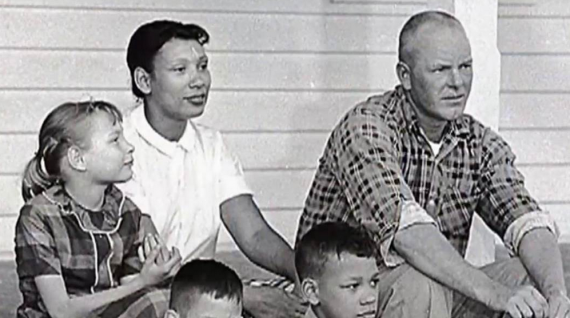
The couple had grown up in Central Point, a small town in Virginia that was more integrated than surrounding areas in the American South. Yet it was the state of Virginia, where they were making their home and starting a family that first jailed and then banished them. Richard and Mildred relocated with their children to the inner city of Washington, D.C. While relatives made them feel welcome there, the more urban environment did not feel like home to them. Ultimately, the pull of their roots in Virginia would spur Mildred to try to find a way back.
Their civil rights case, Loving v. Virginia, went all the way to the Supreme Court, which in 1967 reaffirmed the very foundation of the right to marry. Richard and Mildred returned home and their love story has become an inspiration to couples ever since. Loving began production in the fall of 2015. In a further emphasis on authenticity in recounting the Lovings‟ story, the movie was made on location in Virginia.
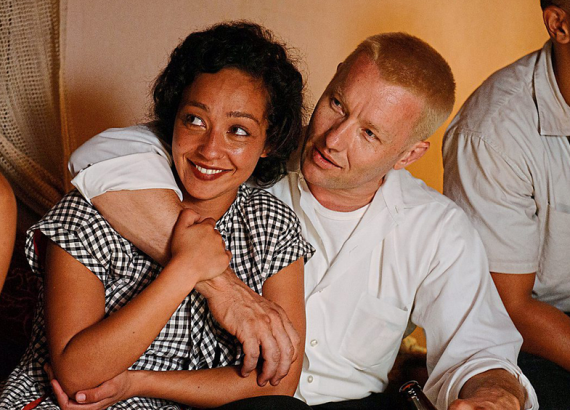
It’s no wonder that lead actress Ruth Negga has been nominated for an Oscar for Best Performance by an Actress in a Leading Role. Her southern American accent is scarily authentic and it was a total surprise to discover that she’s an Irish born and bred lass!
Loving is a film that’s mind-blowing when I consider how much of the population is mixed-race, inter racial, whatever term you feel comfortable using.
Most of my nearest and dearest are of mixed culture, creed and background and the idea that within the past century, their parents hooking up was illegal, is simply inconceivable.
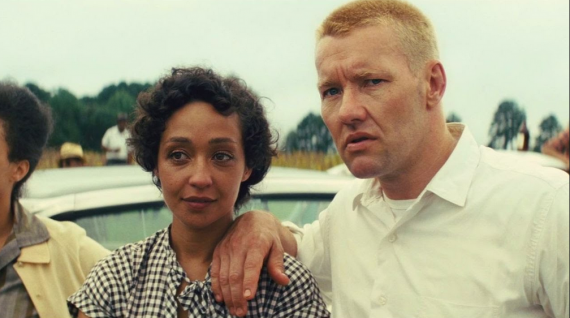
Based in the state of Virginia, many are shocked to learn that this all took place in the past century, but interracial marriage is still frowned upon in some parts of the world, and considering the political world changes and President Trumps current journey, has much changed out there?
There have been a spate of inter racial relationship films being made in recent years, with A United Kingdom also being released this year too. It’s interesting that these tales are all coming the forefront at this politically unstable time.
Its also interesting that the Lovings fought to be married just a few decades ago yet now research globally shows that the sanctity of marriage is dying across the modern world. Its important that these hidden stories are told so that we can gain perspective on our parents and grandparents generations and the struggle and times that they endured.
I often wonder when it comes to life styles and law (gun laws, abortion rights etc), whether the UK are decades ahead of the USA, especially also in terms of interracial harmony and mixed marriages and families? Are Americans becoming less tolerant of ‘other races”?
For many years recently there have been numerous black stories and casts leading cinema narratives.
For a long time the stories were based around stories of suppression like 12 years a slave, Mandela, The Help and more.
I find it extremely refreshing that now the balance is also seeing historical inspiring tales like Hidden Figures becoming popular.
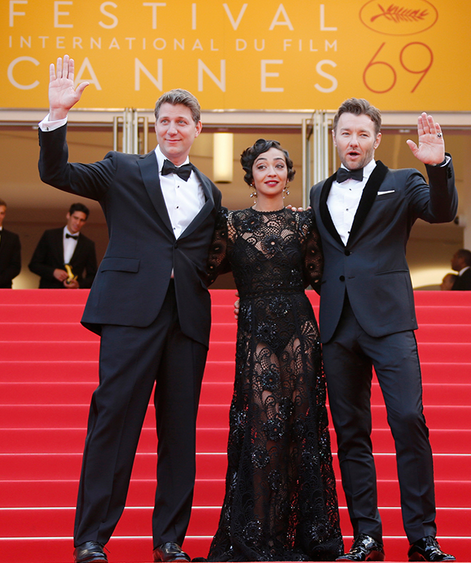
Richard and Mildred‟s history is now told anew by acclaimed writer/director Jeff Nichols in Loving. “I was struck by the simplicity of their beautiful love story,” says the filmmaker.
Richard, who was white, and Mildred, who was African-American and Native-American, were an ordinary couple from Central Point, Virginia. They decided to marry and start a family. Yet, at that time in Virginia, what they did was against the law and they were arrested soon after getting married.
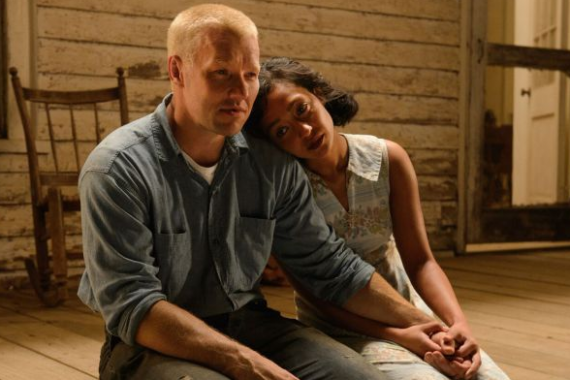
As the plaintiffs in Loving v. Virginia, they were catalysts for the Supreme Court decision that abolished anti-miscegenation laws – or, laws against interracial marriage – in the United States. In establishing marriage as a fundamental right, Loving v. Virginia is still frequently cited in court cases today, including in challenges to gay marriage bans.
But the Lovings were not activists; they merely reasonably expected that their fully legal marriage in Washington D.C. would suffice for them to live peacefully in their hometown of Central Point. Initially, they made no appeal after they were arrested for violating Virginia‟s anti-miscegenation laws, and agreed to a plea bargain that effectively banished them from their home state.
When the Lovings finally sought legal aid in 1963, their sole aim was to be able to get back to – and live in their – home. It was only in 1965, at the urging of their attorneys Bernard Cohen and Philip Hirschkop, that the couple agreed to go public with their story and talk to the press. After the Supreme Court handed down its decision in their favor in June 1967, the Lovings went back to their everyday lives and to raising their three children in Central Point, and rarely gave interviews.
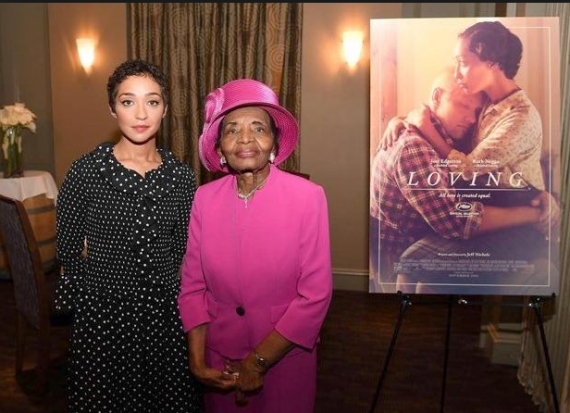
In 2008, the surviving member of the couple, Mildred, passed away. Reading about Mildred, documentary filmmaker Nancy Buirski was moved by the Lovings‟ unshakable devotion to one another – and by the contemporary relevance of their case. Buirski decided to make a documentary feature about Richard and Mildred Loving. Her research led her to television news producer Hope Ryden, who had spent hours filming the Lovings at home in 1965 and then returned in 1967 for ABC-TV to profile them on the eve of the ruling. That footage and other archival resources, including luminous photos by Life Magazine photographer Grey Villet, were utilized by Buirski in writing, producing, and directing The Loving Story.
The Lovings‟ surviving child, Peggy Loving, was a consultant to the production. She visited the set and was struck by how thoroughly the actors had channelled her parents – in character and in costume.
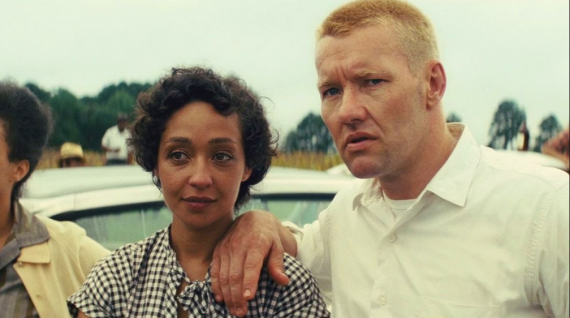
The documentary played at festivals in 2011 before being shown on HBO on Valentine‟s Day, 2012. It won a Peabody Award and an Emmy Award, among other honors, and captivated audiences and critics alike with its depiction of a committed and courageous couple who, above all else, were very much in love.
One of those captivated viewers was Academy Award-winning actor Colin Firth, who was already aware of the documentary; Buirski had been in contact with Firth regarding a feature version of the story after learning from Firth‟s wife Livia of his interest in American politics and social history. By 2009, Buirski and Firth were brainstorming a narrative structure and began working on a screenplay.
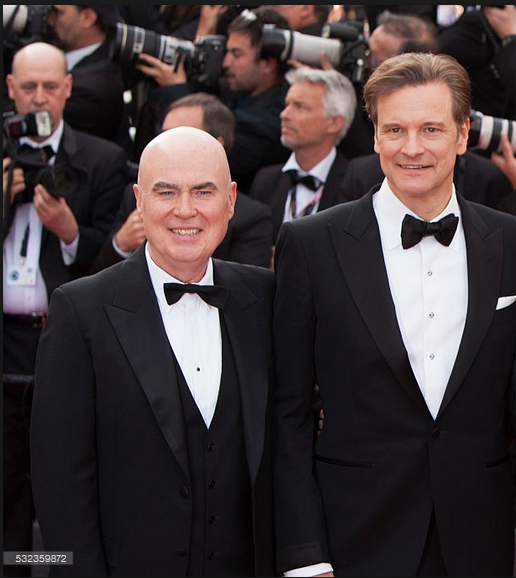
FILM PRODUCER GED DOHERTY AND COLIN FIRTH.
In January 2011, Firth called Buirski to tell her that he was teaming with Ged Doherty to launch a production company, Raindog Films and that as a first project, he had brought up to Doherty a narrative feature version of The Loving Story. Buirski remembers, “Colin had just won the Golden Globe Award for The King’s Speech but I was the one who was overjoyed!” Buirski remembers.
Doherty remarks, “Colin was very taken with the simplicity of the story, with how this ordinary couple made a huge difference in the lives of other couples.
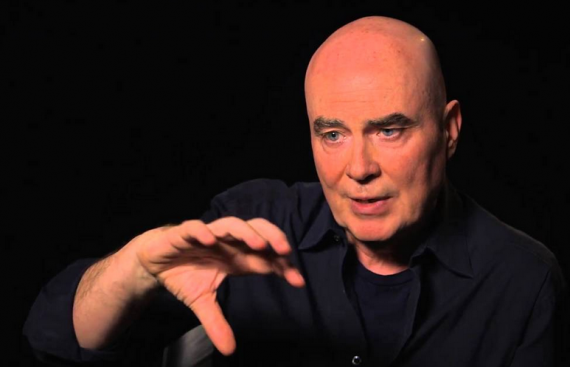
RAINDOG FILMS – GED DOHERTY.
“After watching the documentary, I became obsessed. I literally did not sleep for 48 hours because I was looking at everything I could find online. Yes, this was a landmark legal case, but first and foremost at its heart it was a beautiful love story. Colin and I felt more people worldwide should know about the Lovings, and we were determined to tell their story as a dramatic feature based in part on Nancy‟s documentary.”
The next step was to find a writer and director. When the three producers saw Jeff Nichols‟ Mud at a specially arranged screening in 2012, they sensed that the filmmaker‟s cinematic sensibility and intuitive depictions of Southern men and women would be ideal for the film they wanted to make.
Doherty adds, “We also watched Take Shelter. With Jeff’s work the tension and drama are rich and often are in what is not said; he conveys so much with just a look to the camera or a shot of a landscape. We felt that would suit Richard and Mildred Loving, and the character of people that they were.”
Having already made three feature films, Nichols had not considered writing or directing a film that wasn’t a product of his own imagination. Still, he agreed to consider the project – and its story, which intrigued him.
Nichols watched the documentary and noted the import and continuing positive impact of Loving v. Virginia. But he was most drawn to Richard and Mildred’s quiet determination to live and love as they chose.
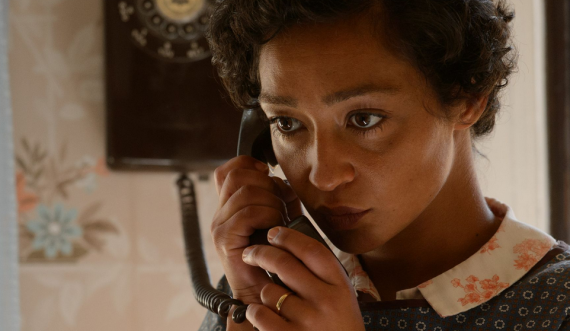
OSCAR NOMINATED RUTH NEGGA.
Negga had been deeply affected by The Loving Story. She explains, “I thought the documentary was brilliant and I couldn’t believe I hadn’t heard of Richard and Mildred before. I was completely fascinated, not only because Loving v. Virginia was a landmark civil rights case, but also because theirs is the most beautiful love story. Their story just stayed with me. All Mildred wanted was to be able to be married to the man she loved. Not every hero has a loud voice.
“Jeff’s script tells the story of two people in love, not two activists – even though they did change the course of American legal history. I feel that all of his films are about everyday people.”
Once she had gotten the script pages, the actress holed up in her L.A. hotel room for three days to prepare, trying to channel Mildred as best she could. She reports, “I watched the documentary over and over again and worked on those scenes from the script like I had never worked on anything before. I felt such an affinity with Mildred and I couldn’t imagine not playing the part.”
‘Loving’ film’s portrayal of interracial marriage is relevant today and I have all my fingers and toes crossed for February 26th in hope that Negga wins the Oscar she so very dearly deserves.


 Follow
Follow